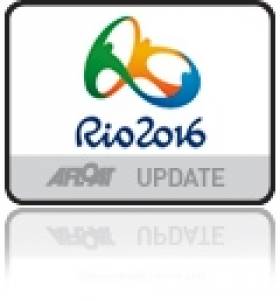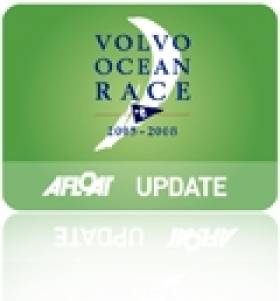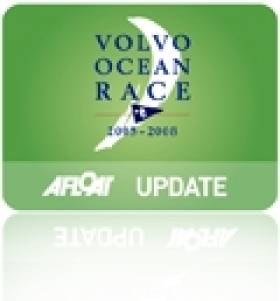Displaying items by tag: United Arab Emirates
Irish Sailors Turn Down Invites For ISAF World Sailing Cup Final
#roadtorio – ISAF Rolex World Sailors of the Year, Olympic medallists, world champions and a Volvo Ocean Race superstar are on their way to Abu Dhabi, United Arab Emirates for the inaugural ISAF Sailing World Cup Final but two Irish Olympic sailors turned down invitations to attend due to there being 'no money in the budget' and the lateness of the ISAF decision in announcing the regatta. Neither Annalise Murphy or Ryan Seaton and Matt McGovern will compete in the UAE despite receiving invitations it was confirmed today by team manager James O'Callaghan. The Irish team is currently training in Rio.
From 26-30 November 2014 283 sailors from 39 nations with proven track records of excellence will fight it out in the Emirati capital for the right to become an ISAF Sailing World Cup Champion.
The sailors to secure their place were confirmed at the ISAF Sailing World Championships in Santander where the top ten in each event were offered a place.
'I wouldn't read too much into the Irish not going to UAE', one team insider told Afloat.ie this afternoon. 'Lots of sailors are avoiding Abu Dhabi for various reasons – while plane tickets are supplied, it will cost the technical classes money to get ancillary equipment there. Also season plans were made long ago and Abu Dhabi is too late to fit in with these', the source said.
Download the full entry list below as PDF file.
All ten Olympic events will be contested in Abu Dhabi along with an open kiteboarding event joining the fray around Lulu Island off the UAE capital's stunning Corniche. The ten Olympic events will contest an opening series and a Medal Race with the kiteboard fleet using a short track format. Prize money will be in awarded to the top three overall finishers in each of the Olympic events from a total prize purse of US$200,000.
With a maximum of just 20 boats present across the 11 ISAF Sailing World Cup Final events, the list of achievements across the board is outstanding.
Female 2014 ISAF Rolex World Sailors of the Year Martine Grael and Kahena Kunze (BRA) are just two star studded names to confirm their attendance. The Brazilians won the coveted ISAF Rolex World Sailor of the Year Award just one week ago thanks to their sublime performances across the latter part of 2013 and 2014. Over the last 18 months the Brazilians have only finished off of the 49erFX podium once and they'll be aiming to extend their run of top finishes in Abu Dhabi.
They will have their work cut out to add gold to their 2014 World and ISAF Sailing World Cup Mallorca & Hyeres titles with 2013 World Champions Alex Maloney and Molly Meech (NZL) and 2014 European Champions Ida Marie Baad Nielsen and Marie Thusgaard Olsen (DEN) within the pack.
London 2012 Women's Match Racing Olympic gold medallist Tamara Echegoyen and 2011 470 World Champion Berta Betanzos (ESP) will also compete within the 19-boat 49erFX fleet in Abu Dhabi.
2014 ISAF Rolex World Sailor of the Year nominee Charline Picon (FRA) will be a force to be reckoned with once again in the Women's RS:X as she looks to make it five regatta victories in a row. Picon blitzed the pack at the Santander 2014 ISAF Sailing World Championships and will be up for the Abu Dhabi challenge. The pack of 20 Women's RS:X racers is full of talent and Picon will certainly be hard pressed. London 2012 Olympic gold medallist Marina Alabau (ESP), silver medallist Tuuli Petaja and bronze medallist Zofia Klepacka (POL) will all be gunning for the World Cup Final title.
Volvo Ocean Race winner Franck Cammas (FRA) will sail in the Nacra 17 fleet and he'll be out to stop his compatriots Billy Besson and Marie Riou (FRA) who have dominated the class. Besson and Riou took the 2013 and 2014 Nacra 17 world titles and have eyes on the inaugural ISAF Sailing World Cup Final title. World #1 Nacra 17 pair Vittorio Bissaro and Silvia Sicouri (ITA) will also be within the 17-boat fleet.
Twenty 49er teams will be gunning for gold in Abu Dhabi. ISAF Sailing World Cup Abu Dhabi will allow the teams an opportunity to race officially within a fleet of 20 boats, the size that will be present at the Rio 2016 Olympic Sailing Competition. Strong contenders in the 49er are in the shape of Nico Delle-Karth and Nikolaus Resch (AUT), Manu Dyen and Stephane Christidis (FRA) and a trio of British racers.
Seven of the world's top ten Finn racers will be competing in Abu Dhabi. World #1 Bjorn Allansson (SWE) will be joined by World #2 Ivan Kljakovic Gaspic (CRO) and World #3 Jake Lilley (AUS). Laser Olympic bronze medallist at Athens 2004 and Olympic silver medallist at Beijing 2008 Vasilij Zbogar (SLO) will firmly be in contention for Abu Dhabi gold after a solid 18 months of Finn racing.
In the IKA Formula Kite 2014 World Champions Maxime Nocher (FRA) and Steph Bridge (GBR) will be among the racers as well as Bridge's son and 2014 European Champion Oliver Bridge (GBR).
VOR Second Leg Cut Short Over Piracy Concerns
#VOLVO OCEAN RACE - The second leg of the Volvo Ocean Race from Cape Town to Dubai has been cut short by organisers as a result of the growing threat of piracy in the Indian Ocean, The Irish Times reports.
The six yachts competing will be protected by armed guards as they are shipped on a secret route to the United Arab Emirates due to piracy concerns.
The boats will be transported by ship from an undisclosed location to Sharjah in the Arabian Gulf, from where they will sprint to the finish line in Abu Dhabi.
All six teams are currently in Cape Town, with Team Sanya, PUMA and Abu Dhabi Ocean Racing hoping to get back in the race after retiring in the first leg.
As previously reported on Afloat.ie, NATO recently foiled a pirate attack on a Spanish fishing vessel between the Seychelles and the Somali coast.
The Irish Times has more on the story HERE.
Green Dragon Backer Works His Magic for VOR in Abu Dhabi
Abu Dhabi's The National has an interview with David Hassett, commercial director of Abu Dhabi Ocean Racing and Irish yachting veteran, ahead of the city's hosting of the Volvo Ocean Race.
Hassett was instrumental in bringing the race to Galway in 2009, and was one of the team behind the Green Dragon, Ireland's underdog entry which took the yachting world by surprise by clinching three podium finishes.
This time round, Hassett is hoping to work similar magic for Abu Dhabi as it hosts a stopover of the next Volvo Ocean Race at the end of the year - and enters its own yacht in the competition, with at least one Emirati crewman on board.
As commercial director, 40-year-old Hassett - originally from Cork and a championship sailor in his youth - is responsible not only for raising funds, but making sure that his sponsors get the best return on their investment. And that means getting their race entry seen.
"It's my job to ensure that the billboard is effective," he says. "Everywhere the boat goes, the name Abu Dhabi goes and it becomes synonymous."
Top pritority for Hassett is marketing Abu Dhabi as a "winter watersports destination", and encourage more people in the region to get off their jet skis and into sailing.
The National has more on the story HERE.
































































